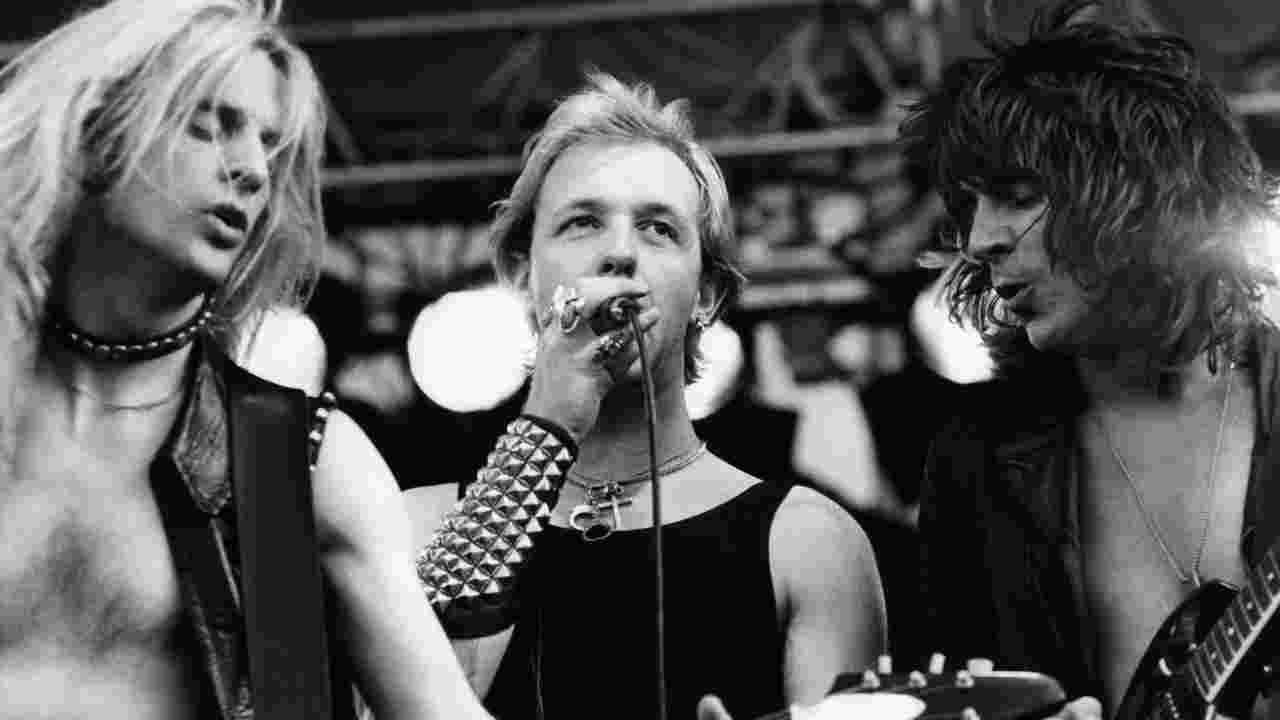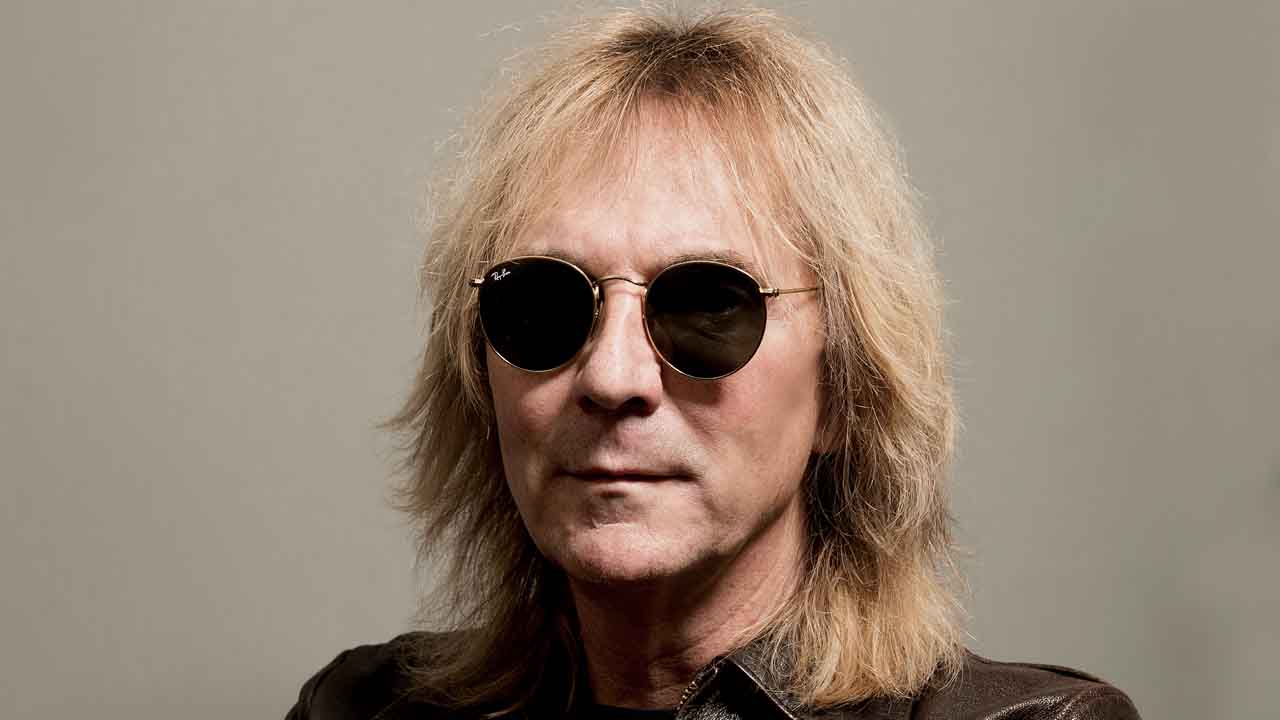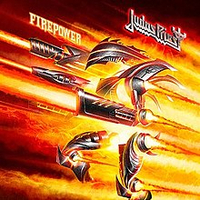Rob Halford might proclaim himself The Metal God, but he’s not the only member of Judas Priest to have spent almost half a century on the frontlines. Guitarist Glenn Tipton joined the band in 1974, just before they recorded their debut album, Rocka Rolla, and - along with bassist Ian Hill – has appeared on every album since.
He stepped back from touring in 2018, after revealing that he had been diagnosed with Parkinson’s disease, but was still involved in their most recent album, Firepower. Here he looks back on a life in metal.

- Where to buy the coolest face masks with a rock and metal twist
- On a budget? Here are the best budget turntables
- Best headphones for music: supercharge your listening
- Spotify vs Apple Music vs Tidal: which streaming service is best for rock and metal?
When and where were you born?
“On October 25, 1947. In the Blackheath area of Birmingham.”
Did you come from a musical family?
“My mother was a classical pianist, so I constantly heard the sound of the piano throughout the house. She was a big influence. My brother Gary also played guitar, and again that inspired me a lot.”
What was the first music to make an impact on you?
“A combination of soul and blues. I had a mate called Pete Hughes, who was the singer in my first band. He and I used to go into Birmingham a lot to buy records. I loved soul singers like Nina Simone and the great bluesmen like Robert Johnson. Those were my first music loves, then I went on to more progressive blues.”
Did you have any music lessons as a kid?
“My mum tried to teach me the piano when I was about 12, but you should never have your parents do that sort of thing. From personal experience, it just doesn’t work. I got bored and gave it up.”

What were you like at school?
“I was far from a model pupil. In fact, I didn’t like it at all. Just about the only subject in which I did well was art. The rest of it was wasted on me.”
What got you into playing guitar?
“It was indirectly through my brother Gary. He had a guitar in his room, so when he was out I’d sneak in and play it. Of course, I thought I would never be found out. But every time I picked up that guitar, the tuning would inevitably change, and my brother… yes, he noticed!”
What made you want to be in a band?
“I think it was a combination of things. As I said, my mother was an inspiration on me wanting to take up music. So, was my brother. He was in a local band at the time called The Atlantics. They were both important. But equally so was that I had a dead-end job at British Steel working in the foundry. I was desperate to get away from that, and I looked at music as being a means to achieve this. I wanted to be in a band in order to help improve my lifestyle.”
What was your first band?
“That was Shave And Dry. The singer in the band was Pete Hughes, the guy I mentioned before. We were a covers band and did a lot of blues-style stuff by the likes of Cream and Jimi Hendrix.”
Do you remember your first ever gig?
“How will I ever forget that?! It was at a place called Henry’s Blues House in Birmingham. It was very small, but very prestigious. A lot of quite big bands would play there, so it was really something for a band like ours to make their live debut there. I remember being so petrified that my fingers went numb on me. I can’t recall how long we ended up playing for, but I know we had enough material for about an hour. I recall playing Spoonful by Cream in the set.”
How did you end up in Priest?
“I was in the Flying Hat Band at the time. Priest and ourselves were competitors on the local live circuit, and then they got a record deal. At the time, I was living on the settee of the Flying Hat Band’s drummer Barry ‘Spence’ Scrannage, but we were pretty much all over as a band, because of management problems. What I didn’t know was that Priest had been advised to bring in either a second guitarist or a keyboard player to beef up their sound. They knew about me, so Ken [K.K. Downing, guitar], Ian [Hill, bass] and Rob [Halford, vocals] all came to Barry’s place to sound me out. Their manager, Dave Corke, was also with them. Anyway, the upshot was that they offered me the gig. This was in April 1974.”
Was there a moment early on with Priest when you knew you were going to be big?
“Not a moment, no. That sort of thing never happened for me. But I think when I realised the strength of our songwriting, that’s when I felt we had a real chance. From the start, the combination of Ken, Rob and myself just seemed special. And if you’ve got that part of a band sorted, then it’s a huge step forward. I’m not knocking any of the others who’ve contributed so much to Priest over the years, but the songs were the key.”
Why have Priest had so many drummers?
“People still call Scott (Travis, longtime drummer) still the new boy! Before him? Yes, we went through a lot. We lost some through spontaneous combustion. Others through gardening accidents. Truthfully, I don’t know why we had such problems.”
Did success change you?
“I’d like to say it didn’t. And anyone who’s known me across the years will tell you that I’m still very much down to earth and enjoy the same things in life that I always did. But I have to also be honest, and say that every major experience I’ve had with Priest has altered me a little. Being so popular in the US was a big deal for us. When we first got together, we wanted to get out of Birmingham, then get accepted in London, then in Europe. But you know that the biggest sign of a band becoming internationally popular is to have success in the States.”
- Every Judas Priest album ranked from worst to best
- The Top 10 most underrated Judas Priest songs
- The 50 best Metallica songs of all time
- 10 Essential Proto-metal Albums
The band was unsuccessfully sued in 1990 by the family of a fan who allegedly shot himself after listening to Better By You, Better Than Me from 1978’s Stained Class album. How did all that make you feel?
“At first I couldn’t take it seriously. The lawsuit I mean, not the tragedy of the suicide pact. It appeared so stupid. But the closer it got to the trial, the more we all realised this was very serious and had massive implications. I knew that what was on trial wasn’t just Priest or metal, but music, books, films… art in general. I did have a deep fear that if we lost, then everything would be lost. Art would be decimated and the floodgates would open. Those six weeks in court represent the worst period in the band’s career. Ultimately, I didn’t get why people would think Judas Priest wanted to encourage the deaths of anyone. I also hate the whole idea of lawyers trying to make money out of such a situation.”
Rob left the band in 2001. Did you fear that it would mean the end of the band?
“Truthfully? Yes I did have the feeling that we couldn’t carry on. I recall how shocked I was when Rob told us he was leaving. We knew he wanted to do a solo album, but to quit Priest? And, for a time, there was bad blood between us. Which was crazy, because we’d always been so close. But then we found Ripper (Tim ‘Ripper’ Owens) in 1996, did two studio albums and one live album with him and… you know, working with Ripper allowed us to explore different musical ideas. So, it turned out to be something positive.”
He came back in 2003. For you, was that always inevitable?
“I never said anything while he was out of the band, but deep down I think all of us knew he’d be back. It was just a case of when. That’s not to knock Ripper, because he was great. However, as soon as Rob returned, it was obvious that things were right on track. The old songwriting partnership between Rob, Ken and myself clicked back into gear.”
Do you have any musical ambitions left to fulfil?
“I’d like to produce a band one day. If I come across one that excites me, then I can certainly see myself doing something like that. But there is another ambition I have, and I’m not sure I have ever spoken about this to anyone before. I love films, and one of the great things for me is the way you can take a scene and put it to music to create magic. I would never be bold enough to suggest that I’m capable of scoring an entire movie, but what I’d like to do is get involved with a film, and be able to come up with some music for it. I’ve been lucky enough anyway to have done so much in my career to date. When I look back at what I’ve been part of for so long and what Priest have achieved, it makes me feel as if I’ve been so fortunate. Mind you, I’m still only 25, so there’s plenty of time for a lot more to happen!”
How do you relax away from Judas Priest?
“One thing I’ve become very good at is flying model airplanes and destroying them. Not deliberately, but I do have this heavy metal knack of crashing them all the time. But my real passion away from music has to be fishing. I definitely prefer the countryside to the city. Everywhere I go in the world, I have mates with whom I just go out fishing. It’s something that relaxes and thrills me at the same time. Whether it’s salmon, trout or whatever, any type of fishing appeals to me, and to be able to go into the country, turn off the phone and get away from the life of being rock musician just for a few hours is my favourite hobby.”


